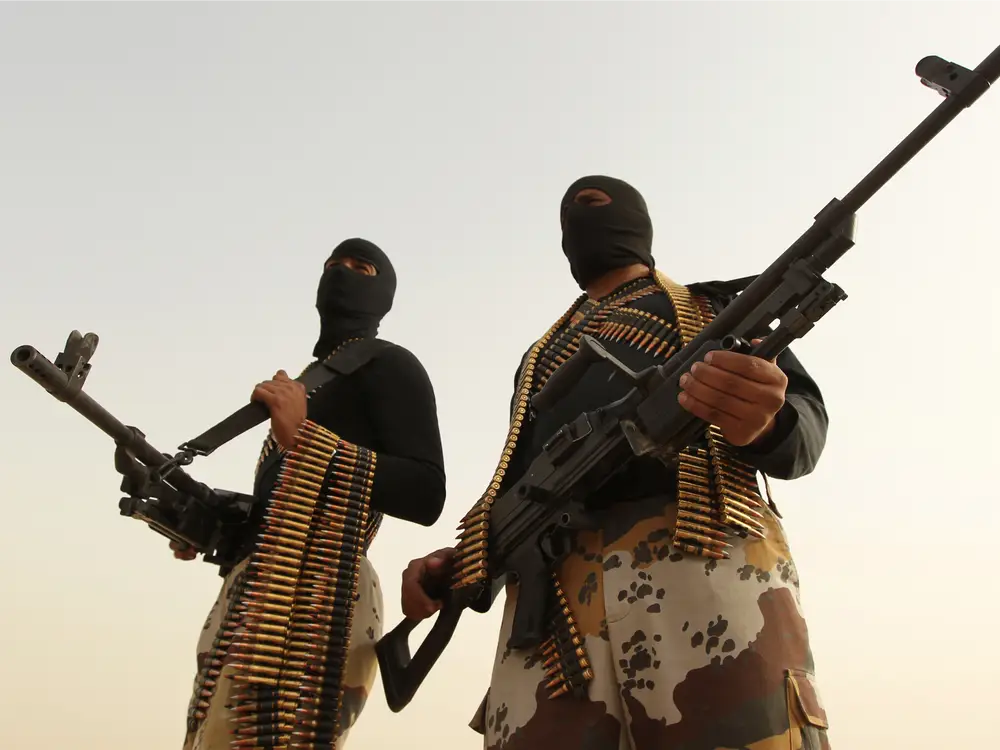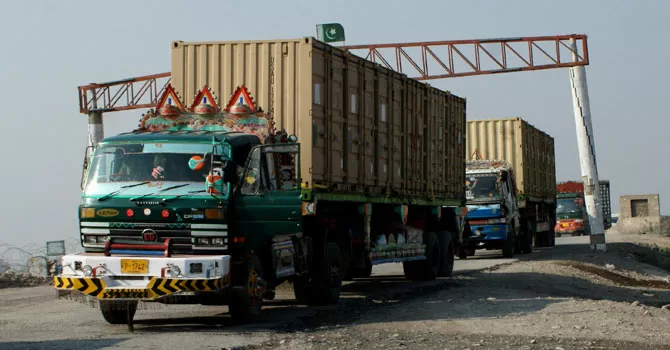Corruption is alive and well in Pakistan, like inflation it has force-multiplied itself into an inescapable part of our daily lives. That we have not reached economic apocalypse because of this evil in our society is only a miracle. One of the fundamental premise of democracy being that all transactions must be open for detailed public scrutiny, public oversight is impossible with-out the basic foundation of Local Bodies at the grassroots level. As we have seen in recent instances, the media’s credibility has been eroded by the subversion of its sanctity of fair-minded objective reporting and analysis. Why does one wonder at the total denial of the present regime in allowing elected public representatives function at the doorstep of the masses? This lack of transparency and accolinfability thereof at the grassroots level allows corruption to flourish and makes our so-called democracy into a farce.
Widespread and endemic in the body administration today, corruption in Pakistan not only supports but has morphed naturally into organized crime, proliferating and flourishing all over of the country. In the urban areas, this takes the form of land mafia, water mafia, transport mafia, sand mafia, “protection” rackets, etc in the rural areas of Pakistan the feudal lords criminally hold sway over the population by holding them in virtual bondage and monopolizing the civilian administrative mechanism. In both areas, the local police is fully involved, both in corruption and organized crime. The United Nations (UN) defines “Organized Crime” as “large-scale and complex criminal activity carried on by groups of persons, for the enrichment of those participating and at the expense of the community and its members through ruthless disregard of any law, including offences against the person, and frequently in connection with political corruption”, unquote. The nexus between illegal underworld and the economics of parallel illegal markets creates a parallel society outside the control of the government, guessed at by the intelligentsia but the public generally remaining largely blissfully unaware of and/or indifferent to their activities. In Pakistan, this nexus has success-fully infiltrated into the higher reaches of government itself, from circumventing the rule of law they have become the rule of law itself. Look at the list of political luminaries and bureaucratic functionaries involved in the “ephedrine case” based out of the office of the chief executive of the country.
It suits our industrialists for their factories to employ contract labour and have no unions because Illegal immigrants have no recourse to justice, our industrialists supporting organized crime for their own profit. Thus controlled by organized crime. Illegal labour is also exploited for organized criminal activities, this undermine the social fabric of countries. Prevalent tax evasion in Pakistan supports large scale money-laundering, manipulating and monopolizing financial markets. “Organized Crime” using legitimate industries like construction and hauling of garbage, bringing drugs into cities, their “businesses” include prostitution, human trafficking and extortion. For those living in Karachi, does this sound familiar? Increasingly their effects influence in the politics of the country, and eventually erodes the foundations of civilized society. A recent UN report says organized crime had revenues of $2 trillion last year, double of all the military budgets in the world combined.
Organized crime is very well documented in Karachi, the law enforcement agencies (LEAs), Rangers and intelligence agencies have given credible proof to the Supreme Court (SC) about the involvement all major political par-ties in the coalition in Sindh employing target killers, the Provincial Administration itself an accessary giving administrative cover to such activity. Other than coalition partners the PPP, MQM, ANP and PML (F), it is not for want of trying that PML (N) (and others) do not have a militant wing. Militant gangs using the cover of politics for this lucrative “business” themselves not only promote organized crime, they also are into terrorism of the non-Jehadi kind. The SC did exercise control for sometime by putting in place a legal mechanism for monitoring, this cover allowed the Rangers to capture a large number of target killers. With the SC intervention waning, the situation has again worsened in Karachi.
Today’s suicide bombers may be mostly of muslim origin but terrorism has no religion or nationality. Japanese pilots made their aircraft into flying bombs in “kamikaze” (divine wind) attacks during World War 2 against US warships in a desperate effort to break the stronghold of the US Navy over the Pacific. Today’s “divine” bombings are an aberration, warped logic and reaction thereof to the real and/or perceived failures and shortcomings of society in dispensing equitable justice and providing good governance. Uniformed, uneducated youth are used virtually as “cannon fodder” by unscrupulous religious deviates, one may well ask them, have they sent any close relation to this certain death?
In the flush of “victory” in ending the Soviet occupation of Afghanistan, we set aside logic and reason. Some “adventurers” of the armchair strategist-kind became gung-ho in encouraging this religion-derived militancy. While Kashmir was justified as an excuse, why did they go so far field as Morocco to Mindanao? Scores of organizations set up shop under their monitoring if not control, it became profitable to be considered a “Jihadi”. To say that we were (and are) ambivalent in curbing religious militancy is to be charitable. We blurred the distinction between religion and national-ism in having the Pakhtun majority Talibaan take control in Kabul when we should have remained neutral in the in-fighting. Even at home, we adopted a “divide and rule” policy within Pakistan politics with our intelligence agencies attempting to marginalize the mainstream political parties and contriving to have the combined MMA win more seats than all the individual religious parties had ever done previously. Why did we hand over our future to religious ideologues who have no under-standing or patience with anyone who do not adhere to their interpretation of religions strictures?

Terrorist groups need arms and money, “Organized Crime” provide couriers who can smuggle drugs, arms and human beings across the countries and regions. Terrorists are motivated by ideology and criminals by greed, the linkages include money-laundering, fabricating pass-port and identification documents, providing safe houses, supplying explosives, etc. Emulating terrorist groups, criminal groups can turn ideological over time. Tactical to strategic connections include logistical support and even some ideological overlap. It may be impossible to destroy the logistical network sup-porting terrorist groups without striking major blows at supporting criminal networks. With increased criminal activity replacing ideology, profit and greed are main motivation for operations of some terrorist groups. Collaboration includes money earned from drug trafficking sup-porting both criminal and terrorist activity. Terrorist organizations can include common criminals with special skills or access to networks or criminal opportunities. The more staunchly ideological jihadists use drugs trade as a means to an end, rather than an end in itself, making them less ambitious and probably more capable of evading law enforcement agencies (LEAs), illicit operations render militant cells more vulnerable to detection. Remedial measures include improving police capability to locate and disrupt criminal networks.
In Jan 12, 2002, Gen Musharraf annunciated major policy measures’ to combat terrorism and ferret out extremism as well as militancy from society, affirming that Pakistan would not allow its territory to be used for terrorist activities against any country. Amendments to the Anti-terrorism Ordinance 2001 were meant to sustain the process of curbing terrorism and extremism, sparking a whole series of political, legislative and administrative means for the “war on terrorism”. These included viz (1) registration of Religious Schools (Deeni Madaris) to bring these under the mainstream educational system (2) police reforms, including better training facilities and establishment of forensic laboratories, to make them more effective and professional (3) making border controls more effective by computerization and use of machine read-able passports and (4) banning extremist parties, including at least seven sectarian militant organizations and detaining their leaders. All very well on paper and making for good rhetoric, why did we hesitate from implementing these? The problem was that Gen Musharraf’s inner circle included Lt Gens Usmani and Mahmood, both closet “Jehadis” of the worst kind, as his closest aides.
Huge amounts of money are being channeled into three concentric spheres supporting terrorism, the consequences of this funding are death and murder. Money pro-vides terrorism necessary logistics e.g. explosives, hideouts, travel and the search and observation of soft vulnerable targets, etc. Within the inner-most circle are the terrorists themselves, they are in turn sur-rounded by a second wider circle of direct supporters, planners, commanders, religious personalities, etc, who serve as the terrorism infrastructure. The third circle is of religious, educational and welfare organizations. Within this tunnel vision, democracy is unthinkable and with minimum exposure to the outside world, isolation of terrorists (and ignorance) is where most of their strength is derived from. They spout a litany of hatred, lies and ignorance, operating mostly through mosques, madrasas and other religious establishments. The primary target must be the second circle, not only to get to the source but that is the only way to break this evil chain. This is the circle from where the lead is taken to blaming anyone and everyone within and outside the Moslem world for their miseries. Acting as guardians of the people they make sure that rather than listen to the world outside, the people look and listen inwards to the vicious propaganda of terror and incitement being dished out by the inner circle. Those fighting terrorism must ensure that the public at the grassroots level has unrestricted access to independent media, only elected Local representation can give that necessary platform.
We are at the “ground zero” of terrorism, with corruption and organized crime coming together exacerbating the situation. Desperate people do exist in different cultures and countries, but they do they have the capacity to provide anyone with explosives, reconnaissance and transportation as is being done almost openly in Pakistan? Having developed a symbiotic relationship, all terrorist acts are not organized crime, neither are all criminal acts terrorism. Organized crime in most developed countries thrives with little or no terrorist activities, in most developing countries in Pakistan, terrorism exists along with varying levels of organized criminal activity, (1) TTP aims to overthrow the existing government by altering the status quo of the prevailing system while organized crime aims to form a parallel government while coexisting with the existing one; change in the status quo is only circumstantial and out of convenience rather than zealous revisionist policy, (2) terrorism primarily uses violent means, organized crime prefers non-violence notwithstanding the odd resort to belligerence, mostly as a “show of force” and (3) while terrorism is driven purely by political objectives despite exploitation of regional, national and religious sentiments to achieve their ends; conversely, economic objectives are the operational determinants of organized crime. Modern terrorists rely on well-funded mentors and have no regard for human life.
Nations enter into conflict with the objective of ending it, the para-dox is that the very nature of the war will sometimes perpetuate the conflict. In Afghanistan the US war against terrorism meant to eradicate the Talibaan has fueled poppy cultivation, drug manufacturing and distribution thereof. Not only do the Talibaan benefit from the “taxes” they impose on the farmers, the drug laboratories and the drug smugglers all along the supply route but criminal networks proliferate and flourish alongwith a burgeoning arms and drug trade. Not least important are the “taxes” collected, not only by warlords along the route but by any individual and/or entity wielding a gun and having the capacity to influence the outcome of the confrontation favourably.

Let us start with NATO’s war material landing at Karachi and the supply route thereof. The truck owners at Karachi than give protection money for passing through the city, this “tax” collection goes right upto the border. Some trucks/containers are intercepted by either Jihadis or criminal elements set fire and burnt, some are looted. Some are “burnt” after they have been looted by the truck owners themselves, all in convenience with paramilitary law enforcement agencies (LEAs) who take a “cut” to look the other way. How else is there a thriving blackmarket for NATO goods in Pakistan? Equipment at dirt cheap prices aside, one can even intermittently get NATO standard arms and ammunition. And once they enter Afghanistan, who do you think allows them through but the Talibaan them-selves, for a “tax” that is! In effect.
NATO’s war effort in Afghanistan and the supply thereof from outside Afghanistan fuels the war effort. No better example can be given of the perfect nexus between corruption, organized crime and terrorism.
The civilized world still has illusions that it is possible to enforce the rule of law in a totally lawless environment. No country has a law against cannibals eating citizens because such an act would be unthinkable, but it is time the world evaluated options of bringing the unthinkable into the statute books. Haim Harrari put forward some interesting questions in his dissertation on the rule of law. No doubt that civilized society can be strait-jacketed with limitations, but in questioning these limitations, one can always find likely answers, viz (1) can a government listen to phone conversations of terrorist and drug dealers? In a country where the intelligence agencies normally listen to private conversations at their will without official sanction, why not? (2) Can one raid a church, mosque or synagogue, which serves as a terrorist hideout or ammunition storage? If someone has already thus compromised the sanctity of these religious places of worship, the site can hardly be called sacred (3) If attacked from a hospital do you return fire? Why not as long as you can apply the golden rule of taking great care that civilians (in this case patients and medical staff) do not come into the line of fire? (4) Do you storm a mosque taken over by terrorists who have taken hostages? The mosque can-not remain sacred once it is put such use (5) Do you strip every woman because one pretended to be pregnant and carried a suicide bomb on her belly? One may not strip every pregnant woman, but she can be searched by female security personnel to prevent other innocents, including children, from being murdered (6) Do you shoot back at someone trying to kill you while standing deliberately behind a group of children? You exercise the same care as you would for any non-combatant in the line of fire (7) Do you raid terrorist headquarters hidden in a mental hospital? One applies the same rule of keeping care that non-combatants do not come into the line of fire, this is also true for those terrorists who deliberately use children as a human shields.
Countering terrorism needs creating and developing successive layers of defence against corruption and organized crime, put-ting emphasis on the most dangerous threats and the likely targets thereof. Among the required capabilities will be the ability to, viz (1) detect people organized in terrorist activity and identify them, and have the capability of simultaneously monitoring their movements (2) detect the money trail and the supply sources of explosive materials likely to be used, after all the terrorists have to procure it from somewhere (3) mobilize one’s defense capability to recognize and counter specific threats (4) mobilize adequate and coordinated intelligence capability, utilizing both human and electronic intelligence (5) focus on air, sea, rail and road travel as potential terror targets (6) guard the country’s frontiers, this may involve monitoring and observation of thousands and thousands of miles of borders. (7) Those connected directly to the perpetrators and those who indirectly give sustenance must be targeted, including funds ostensibly meant for charity. Besides draining the country of its precious foreign exchange reserves, terrorist funding comes through foreign exchange dealers and “havalas”.
Terrorism must be the domain of certain law enforcement agencies (LEAs) but it is presently beyond their capacity. What we need is a fully equipped independent force mandated to fight terrorism within the country, this Counter-Terrorism Force (CTF) must have its own personnel, equipment, mobility and intelligence potential drawn from the Armed Forces, LEAs, Customs, para-military forces, etc.

The pro-posed CTF should be developed on the pattern of the tremendously successful Anti-Narcotics Force (ANF) that almost eliminated poppy cultivation and drug smuggling. The nucleus of the ANF’s existing administrative, operational and intelligence structure can easily be converted into the CTF. With the politicians well aware that the CTF will cut into their corruption, and by default organized crime, will they ever opt for a CTF? And without a dedicated CTF we will keep on fighting terror-ism for another hundred years!.
For Pakistan there is no choice! We must fight against the combined nemesis of corruption, organized crime and terrorism clouding our future as a civilized society. A multi-pronged, multi-dimensional strategy including dedicated counter-terrorism operations must involve elected representatives to engage in dialogue at the grassroots level and go hand in hand with administrative, social and economic initiatives to root out corruption and organized crime.♦




